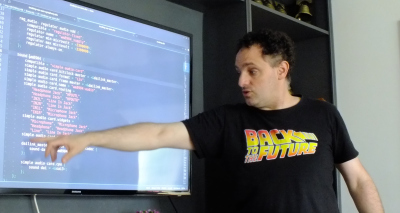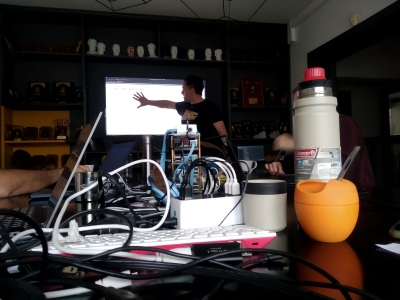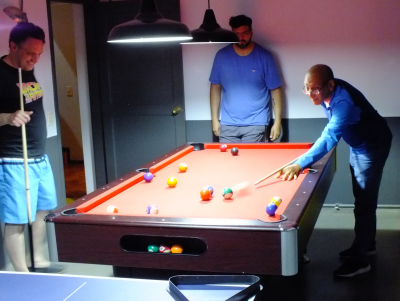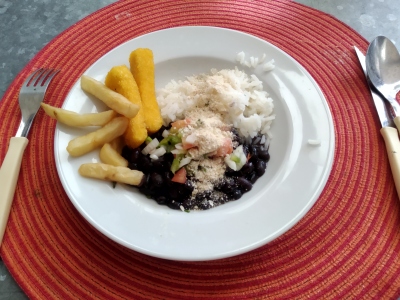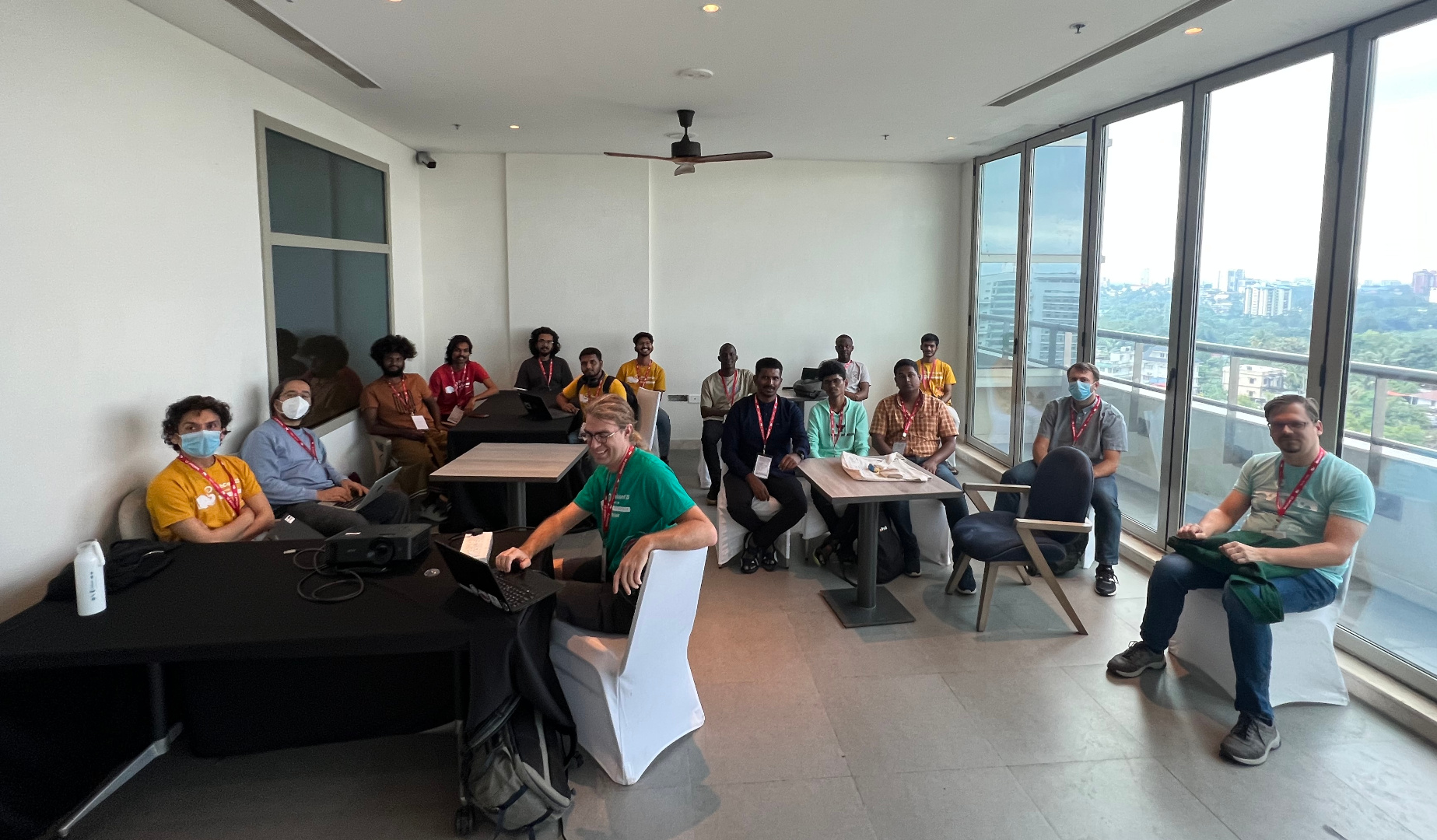Freexian Collaborators: Monthly report about Debian Long Term Support, March 2024 (by Roberto C. S nchez)

 Like each month, have a look at the work funded by Freexian s Debian LTS offering.
Like each month, have a look at the work funded by Freexian s Debian LTS offering.
Debian LTS contributors
In March, 19 contributors have been paid to work on Debian
LTS, their reports are available:
- Abhijith PA
did 0.0h (out of 10.0h assigned and 4.0h from previous period), thus carrying over 14.0h to the next month.
- Adrian Bunk
did 59.5h (out of 47.5h assigned and 52.5h from previous period), thus carrying over 40.5h to the next month.
- Bastien Roucari s
did 22.0h (out of 20.0h assigned and 2.0h from previous period).
- Ben Hutchings
did 9.0h (out of 2.0h assigned and 22.0h from previous period), thus carrying over 15.0h to the next month.
- Chris Lamb
did 18.0h (out of 18.0h assigned).
- Daniel Leidert
did 12.0h (out of 12.0h assigned).
- Emilio Pozuelo Monfort
did 0.0h (out of 3.0h assigned and 57.0h from previous period), thus carrying over 60.0h to the next month.
- Guilhem Moulin
did 22.5h (out of 7.25h assigned and 15.25h from previous period).
- Holger Levsen
did 0.0h (out of 0.5h assigned and 11.5h from previous period), thus carrying over 12.0h to the next month.
- Lee Garrett
did 0.0h (out of 0.0h assigned and 60.0h from previous period), thus carrying over 60.0h to the next month.
- Markus Koschany
did 40.0h (out of 40.0h assigned).
- Ola Lundqvist
did 19.5h (out of 24.0h assigned), thus carrying over 4.5h to the next month.
- Roberto C. S nchez
did 9.25h (out of 3.5h assigned and 8.5h from previous period), thus carrying over 2.75h to the next month.
- Santiago Ruano Rinc n
did 19.0h (out of 16.5h assigned and 2.5h from previous period).
- Sean Whitton
did 4.5h (out of 4.5h assigned and 1.5h from previous period), thus carrying over 1.5h to the next month.
- Sylvain Beucler
did 25.0h (out of 24.5h assigned and 35.5h from previous period), thus carrying over 35.0h to the next month.
- Thorsten Alteholz
did 14.0h (out of 14.0h assigned).
- Tobias Frost
did 12.0h (out of 12.0h assigned).
- Utkarsh Gupta
did 19.5h (out of 0.0h assigned and 48.75h from previous period), thus carrying over 29.25h to the next month.
Evolution of the situation
In March, we have released 31 DLAs.
Adrian Bunk was responsible for updating gtkwave not only in LTS, but also in unstable, stable, and old-stable as well. This update involved an upload of a new upstream release of gtkwave to each target suite to address 82 separate CVEs. Guilhem Moulin prepared an update of libvirt which was particularly notable, as it fixed multiple vulnerabilities which would lead to denial of service or information disclosure.
In addition to the normal security updates, multiple LTS contributors worked at getting various packages updated in more recent Debian releases, including gross for bullseye/bookworm (by Adrian Bunk), imlib2 for bullseye, jetty9 and tomcat9/10 for bullseye/bookworm (by Markus Koschany), samba for bullseye, py7zr for bullseye (by Santiago Ruano Rinc n), cacti for bullseye/bookwork (by Sylvain Beucler), and libmicrohttpd for bullseye (by Thorsten Alteholz). Additionally, Sylvain actively coordinated with cacti upstream concerning an incomplete fix for CVE-2024-29894.
Thanks to our sponsors
Sponsors that joined recently are in bold.
- Platinum sponsors:
- TOSHIBA (for 103 months)
- Civil Infrastructure Platform (CIP) (for 71 months)
- Gold sponsors:
- Roche Diagnostics International AG (for 114 months)
- Linode (for 108 months)
- Babiel GmbH (for 97 months)
- Plat Home (for 97 months)
- CINECA (for 71 months)
- University of Oxford (for 53 months)
- Deveryware (for 40 months)
- VyOS Inc (for 35 months)
- EDF SA (for 24 months)
- Silver sponsors:
- Domeneshop AS (for 118 months)
- Nantes M tropole (for 112 months)
- Univention GmbH (for 104 months)
- Universit Jean Monnet de St Etienne (for 104 months)
- Ribbon Communications, Inc. (for 98 months)
- Exonet B.V. (for 88 months)
- Leibniz Rechenzentrum (for 82 months)
- Minist re de l Europe et des Affaires trang res (for 65 months)
- Cloudways by DigitalOcean (for 55 months)
- Dinahosting SL (for 53 months)
- Bauer Xcel Media Deutschland KG (for 47 months)
- Platform.sh SAS (for 47 months)
- Moxa Inc. (for 41 months)
- sipgate GmbH (for 38 months)
- OVH US LLC (for 36 months)
- Tilburg University (for 36 months)
- GSI Helmholtzzentrum f r Schwerionenforschung GmbH (for 28 months)
- Soliton Systems K.K. (for 25 months)
- THINline s.r.o.
- Bronze sponsors:
- Evolix (for 119 months)
- Seznam.cz, a.s. (for 119 months)
- Intevation GmbH (for 116 months)
- Linuxhotel GmbH (for 116 months)
- Daevel SARL (for 114 months)
- Bitfolk LTD (for 113 months)
- Megaspace Internet Services GmbH (for 113 months)
- Greenbone AG (for 112 months)
- NUMLOG (for 112 months)
- WinGo AG (for 112 months)
- Ecole Centrale de Nantes - LHEEA (for 108 months)
- Entr ouvert (for 103 months)
- Adfinis AG (for 100 months)
- GNI MEDIA (for 95 months)
- Laboratoire LEGI - UMR 5519 / CNRS (for 95 months)
- Tesorion (for 95 months)
- Bearstech (for 86 months)
- LiHAS (for 86 months)
- Catalyst IT Ltd (for 81 months)
- Supagro (for 76 months)
- Demarcq SAS (for 75 months)
- Universit Grenoble Alpes (for 61 months)
- TouchWeb SAS (for 53 months)
- SPiN AG (for 50 months)
- CoreFiling (for 45 months)
- Institut des sciences cognitives Marc Jeannerod (for 40 months)
- Observatoire des Sciences de l Univers de Grenoble (for 37 months)
- Tem Innovations GmbH (for 32 months)
- WordFinder.pro (for 31 months)
- CNRS DT INSU R sif (for 30 months)
- Alter Way (for 23 months)
- Institut Camille Jordan (for 12 months)
Thanks to our sponsors
Sponsors that joined recently are in bold.
- Platinum sponsors:
- TOSHIBA (for 103 months)
- Civil Infrastructure Platform (CIP) (for 71 months)
- Gold sponsors:
- Roche Diagnostics International AG (for 114 months)
- Linode (for 108 months)
- Babiel GmbH (for 97 months)
- Plat Home (for 97 months)
- CINECA (for 71 months)
- University of Oxford (for 53 months)
- Deveryware (for 40 months)
- VyOS Inc (for 35 months)
- EDF SA (for 24 months)
- Silver sponsors:
- Domeneshop AS (for 118 months)
- Nantes M tropole (for 112 months)
- Univention GmbH (for 104 months)
- Universit Jean Monnet de St Etienne (for 104 months)
- Ribbon Communications, Inc. (for 98 months)
- Exonet B.V. (for 88 months)
- Leibniz Rechenzentrum (for 82 months)
- Minist re de l Europe et des Affaires trang res (for 65 months)
- Cloudways by DigitalOcean (for 55 months)
- Dinahosting SL (for 53 months)
- Bauer Xcel Media Deutschland KG (for 47 months)
- Platform.sh SAS (for 47 months)
- Moxa Inc. (for 41 months)
- sipgate GmbH (for 38 months)
- OVH US LLC (for 36 months)
- Tilburg University (for 36 months)
- GSI Helmholtzzentrum f r Schwerionenforschung GmbH (for 28 months)
- Soliton Systems K.K. (for 25 months)
- THINline s.r.o.
- Bronze sponsors:
- Evolix (for 119 months)
- Seznam.cz, a.s. (for 119 months)
- Intevation GmbH (for 116 months)
- Linuxhotel GmbH (for 116 months)
- Daevel SARL (for 114 months)
- Bitfolk LTD (for 113 months)
- Megaspace Internet Services GmbH (for 113 months)
- Greenbone AG (for 112 months)
- NUMLOG (for 112 months)
- WinGo AG (for 112 months)
- Ecole Centrale de Nantes - LHEEA (for 108 months)
- Entr ouvert (for 103 months)
- Adfinis AG (for 100 months)
- GNI MEDIA (for 95 months)
- Laboratoire LEGI - UMR 5519 / CNRS (for 95 months)
- Tesorion (for 95 months)
- Bearstech (for 86 months)
- LiHAS (for 86 months)
- Catalyst IT Ltd (for 81 months)
- Supagro (for 76 months)
- Demarcq SAS (for 75 months)
- Universit Grenoble Alpes (for 61 months)
- TouchWeb SAS (for 53 months)
- SPiN AG (for 50 months)
- CoreFiling (for 45 months)
- Institut des sciences cognitives Marc Jeannerod (for 40 months)
- Observatoire des Sciences de l Univers de Grenoble (for 37 months)
- Tem Innovations GmbH (for 32 months)
- WordFinder.pro (for 31 months)
- CNRS DT INSU R sif (for 30 months)
- Alter Way (for 23 months)
- Institut Camille Jordan (for 12 months)
- TOSHIBA (for 103 months)
- Civil Infrastructure Platform (CIP) (for 71 months)
- Roche Diagnostics International AG (for 114 months)
- Linode (for 108 months)
- Babiel GmbH (for 97 months)
- Plat Home (for 97 months)
- CINECA (for 71 months)
- University of Oxford (for 53 months)
- Deveryware (for 40 months)
- VyOS Inc (for 35 months)
- EDF SA (for 24 months)
- Domeneshop AS (for 118 months)
- Nantes M tropole (for 112 months)
- Univention GmbH (for 104 months)
- Universit Jean Monnet de St Etienne (for 104 months)
- Ribbon Communications, Inc. (for 98 months)
- Exonet B.V. (for 88 months)
- Leibniz Rechenzentrum (for 82 months)
- Minist re de l Europe et des Affaires trang res (for 65 months)
- Cloudways by DigitalOcean (for 55 months)
- Dinahosting SL (for 53 months)
- Bauer Xcel Media Deutschland KG (for 47 months)
- Platform.sh SAS (for 47 months)
- Moxa Inc. (for 41 months)
- sipgate GmbH (for 38 months)
- OVH US LLC (for 36 months)
- Tilburg University (for 36 months)
- GSI Helmholtzzentrum f r Schwerionenforschung GmbH (for 28 months)
- Soliton Systems K.K. (for 25 months)
- THINline s.r.o.
- Evolix (for 119 months)
- Seznam.cz, a.s. (for 119 months)
- Intevation GmbH (for 116 months)
- Linuxhotel GmbH (for 116 months)
- Daevel SARL (for 114 months)
- Bitfolk LTD (for 113 months)
- Megaspace Internet Services GmbH (for 113 months)
- Greenbone AG (for 112 months)
- NUMLOG (for 112 months)
- WinGo AG (for 112 months)
- Ecole Centrale de Nantes - LHEEA (for 108 months)
- Entr ouvert (for 103 months)
- Adfinis AG (for 100 months)
- GNI MEDIA (for 95 months)
- Laboratoire LEGI - UMR 5519 / CNRS (for 95 months)
- Tesorion (for 95 months)
- Bearstech (for 86 months)
- LiHAS (for 86 months)
- Catalyst IT Ltd (for 81 months)
- Supagro (for 76 months)
- Demarcq SAS (for 75 months)
- Universit Grenoble Alpes (for 61 months)
- TouchWeb SAS (for 53 months)
- SPiN AG (for 50 months)
- CoreFiling (for 45 months)
- Institut des sciences cognitives Marc Jeannerod (for 40 months)
- Observatoire des Sciences de l Univers de Grenoble (for 37 months)
- Tem Innovations GmbH (for 32 months)
- WordFinder.pro (for 31 months)
- CNRS DT INSU R sif (for 30 months)
- Alter Way (for 23 months)
- Institut Camille Jordan (for 12 months)
 Last week we held our promised miniDebConf in Santa Fe City, Santa Fe province,
Argentina just across the river from Paran , where I have spent almost six
beautiful months I will never forget.
Last week we held our promised miniDebConf in Santa Fe City, Santa Fe province,
Argentina just across the river from Paran , where I have spent almost six
beautiful months I will never forget.



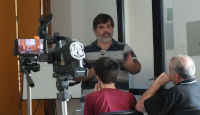
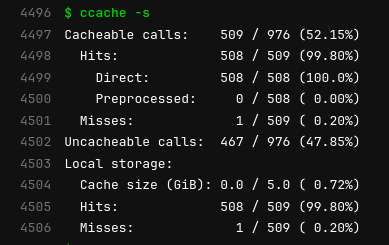 The image here comes from an example of building
The image here comes from an example of building 












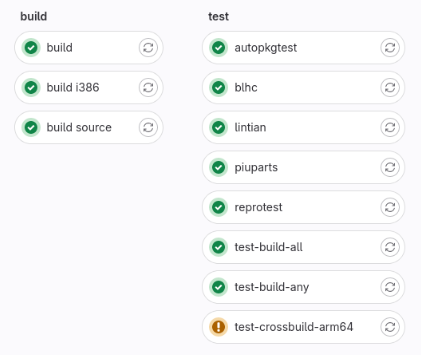 The
The











 15 years, "la ni a bonita", if you ask many of my fellow argentinians, is the amount of time I haven't been present in any Debian-related face to face activity. It was already time to fix that. Thanks to Santiago Ruano Rinc n and
15 years, "la ni a bonita", if you ask many of my fellow argentinians, is the amount of time I haven't been present in any Debian-related face to face activity. It was already time to fix that. Thanks to Santiago Ruano Rinc n and  I took the opportunity to do my first trip by ferry, which is currently one of the best options to get from Buenos Aires to Montevideo, in my case through Colonia. Living ~700km at the south west of Buenos Aires city the trip was long, it included a 10 hours bus, a ferry and yet another bus... but of course, it was worth it.
In Buenos Aires' port I met Emmanuel
I took the opportunity to do my first trip by ferry, which is currently one of the best options to get from Buenos Aires to Montevideo, in my case through Colonia. Living ~700km at the south west of Buenos Aires city the trip was long, it included a 10 hours bus, a ferry and yet another bus... but of course, it was worth it.
In Buenos Aires' port I met Emmanuel 



